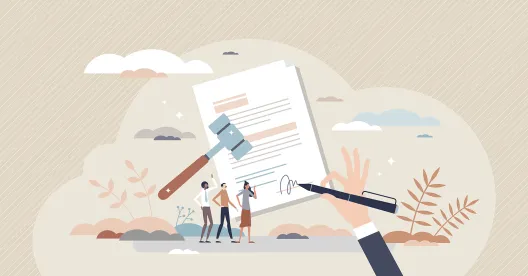Fundamentally, smart contracts are computer protocols that implement the terms of a negotiated contract in a self-executing manner. Such contracts may either be documented entirely in computerized code, accompanied with conventional written agreements reflecting the same negotiated terms that are documented in the code, or partially governed by both code and conventional written agreements that are incorporated by reference in the code. Smart contracts potentially have broad applications, ranging from simple to complex transactions. Nick Szabo, who some consider to be the originator of the smart contracts concept, described the concept of incorporating contract terms into computer hardware and software by describing a car lien. Ordinarily, if a car owner fails to make payments on a car loan, the lender must undertake the process of repossessing the car (i.e., the asset that secures the car loan). By using a self executing smart contract to enable hardware and software functions in the car, a lender can make it impossible for the car owner to start the car if the owner fails to make payments. Once the loan has been fully repaid, the smart contract can automatically add a new function that disables the previous function.
Another practical illustration of the self-executing nature of a smart contract can be observed in a rather simple commercial contract whereby parties have entered into a purchase and sale agreement for an asset, pursuant to which such asset is fully conveyed from one contractual party to the next, but a portion of the payment for that asset remains in escrow subject to certain release conditions. Assume that, pursuant to the terms of a purchase and sale agreement documented in a smart contract, a purchaser of a car acquires full possession and ownership of such car but agrees with the seller of the car to place 10% of the purchase price in escrow, which portion will be automatically released (without any affirmative actions taken by any of the parties or the escrow agent party to the contract) to the seller six months after the purchaser acquires possession and ownership, solely subject to the final settlement by the parties of any outstanding liens against the car. In the event there are no such liens, the escrowed portion of the purchase price would be released to the seller without any need for the escrow agent to initiate a wire transfer because, per the terms of the self-executing smart contract, such transfer would have been initiated at the time the purchaser, seller and escrow agent entered into the smart contract, and such transfer cannot be delayed or impacted by anything other than a final settlement by the parties relating to outstanding liens against the car.
For either of the above simple use cases to function properly, there needs to be a shared ledger wherein the parties to the contract are connected. In the car lien example, the computerized contract that is stored in the car’s onboard computer needs to have a way of confirming that payments on the car loan have been properly paid. In the escrow arrangement example, the computerized contract which is stored on each party’s recordkeeping system must be able to, among other things, receive and accept the terms of any final settlement between the purchaser and seller relating to any outstanding liens against the car. In either use case, the shared ledger would be contained within a blockchain likely customized to handle more complex transactions.
As the use of smart contracts becomes more widespread, parties must determine whether the efficiencies gained by using such contracts outweigh the costs (which may include, for example, increased upfront administrative costs to document standard form smart contracts and implement a blockchain solution on which smart contracts can run).




 />i
/>i

